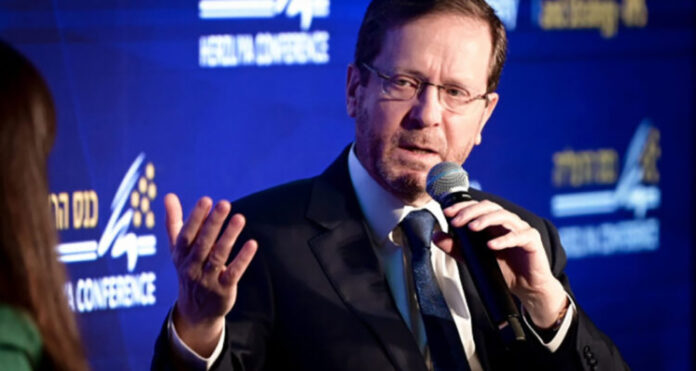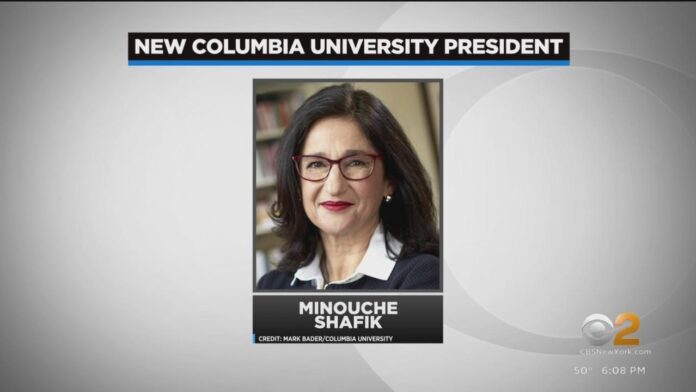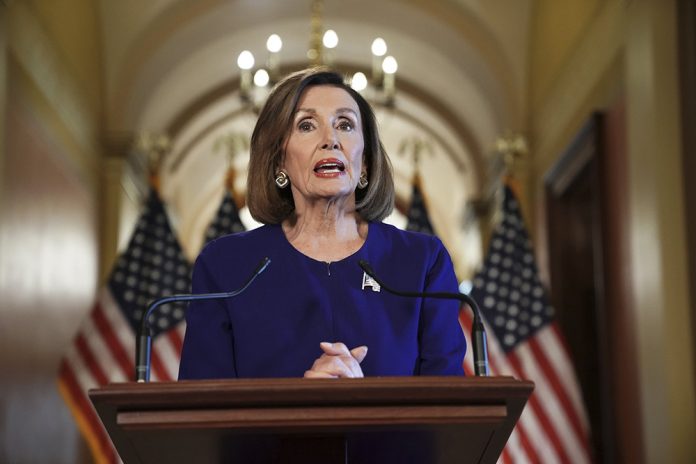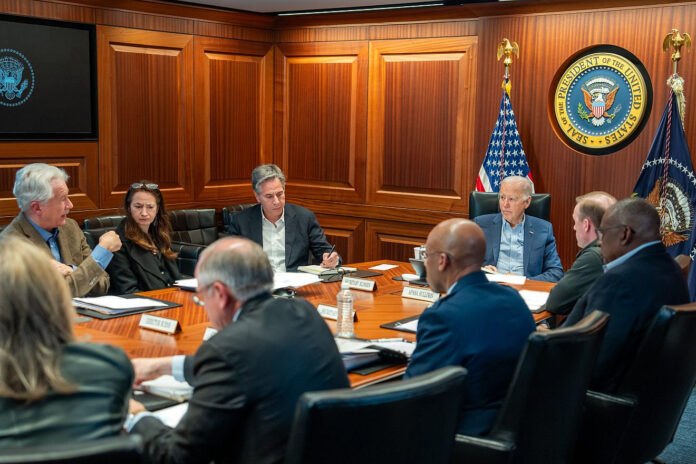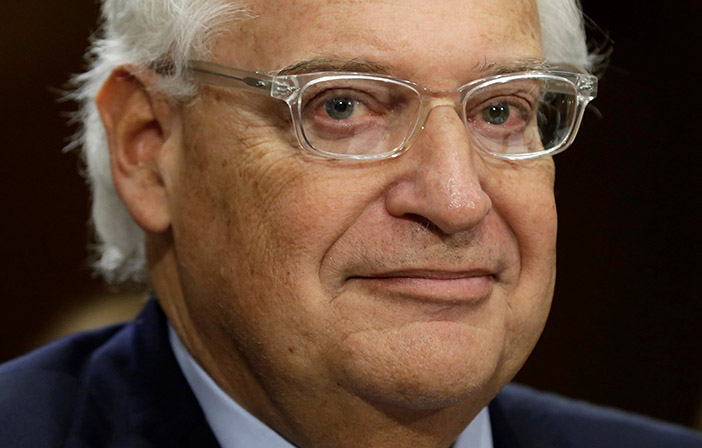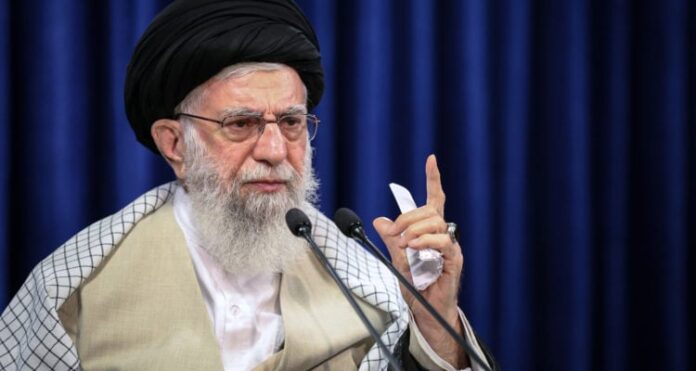Progressives are using legal loopholes and the power of the federal government to maximize Democrat votes in the 2024 election at taxpayers’ expense, RealClearInvestigations has found.
The methods include voter registration and mobilization campaigns by ostensibly nonpartisan charities that target Democrats using demographic data as proxies, and the Biden administration’s unprecedented demand that every federal agency “consider ways to expand citizens’ opportunities to register to vote and to obtain information about, and participate in, the electoral process.”
A dizzying array of overwhelmingly “democracy-focused” entities with ties to the Democratic Party operating as charities and funded with hundreds of millions of dollars from major liberal “dark money” vehicles are engaged in a sprawling campaign to register the voters, deliver them the ballots, and figuratively and sometimes literally harvest the votes necessary to defeat Donald Trump.
These efforts, now buttressed by the federal government, amplify and extend what Time magazine described as a “well-funded cabal of powerful people ranging across industries and ideologies,” who had worked behind the scenes in 2020 “to influence perceptions, change rules and laws, steer media coverage and control the flow of information” to defeat Trump and other Republicans. The “shadow campaigners,” Time declared, “were not rigging the election; they were fortifying it.”
Heading into 2024, “there is not a ‘shadow’ campaign,” said Mike Howell, executive director of The Heritage Foundation’s Oversight Project. “There is an overt assault on President Trump and those who wish to vote for him occurring at every level of government and with the support of all major institutions.” (The Daily Signal is the news organization of The Heritage Foundation.)
By contrast, Republican Party stalwarts lament that no comparable effort exists on their side. The GOP’s turnout and messaging efforts seek to thread a difficult needle by encouraging early and absentee voting and ballot-harvesting—pandemic-era measures that Trump and supporters blame for his 2020 electoral defeat—while the party simultaneously fights the mainly blue-state laws that made the practices possible. The party’s position is further complicated by its standard-bearer’s warnings of a rigged election bigger than in 2020, which some speculate could turn off moderate swing voters.
Electioneering ‘Super-Weapons’
The IRS permits tax-exempt nonprofit groups to engage in voter registration and get-out-the-vote drives so long as they do not “refer to any candidate or political party” nor conduct their activities “in a biased manner that favors (or opposes) one or more candidates prohibited.”
These entities have become magnets for funds not only from wealthy donors, who can contribute without traditional campaign finance limits—and get a tax break to boot—but also abundantly endowed private foundations that are prohibited from engaging in partisan activities.
In recent years, dozens of progressive-oriented 501(c)(3)s, now pulling in upward of $500 million annually, have engaged in purportedly neutral efforts to impact elections, according to Hayden Ludwig, director of policy research at the election integrity-focused advocacy group Restoration of America.
In practice, critics like Ludwig argue, left-leaning charities flout the law by registering and mobilizing demographics that tend to vote disproportionately Democratic behind a veil of nonpartisan democracy promotion.
During the 2020 election, for example, the Voter Participation Center solicited millions of ballot applications in swing states—many of them prefilled for respondents. This nonprofit, like its peers, is clear that it isn’t targeting just any voters, but what it and progressive activists have dubbed a “New American Majority” of “young people, people of color and unmarried women.”
Tom Lopach, a longtime Democratic Party operative and the center’s president and CEO, told RealClearInvestigations in a statement: “We do the work that state election officials typically do not do—seeking out underrepresented voting-eligible Americans … This is difficult but necessary work that brings democracy to eligible Americans’ doorsteps.”
In 2020, Facebook founder Mark Zuckerberg and his wife Priscilla Chan showed how supposedly neutral efforts can have a partisan impact when they funneled some $400 million through two progressive–led but purportedly nonpartisan nonprofits into election offices across the country.
That money disproportionately went to jurisdictions that Joe Biden won in the pivotal battleground states that delivered his victory, often flowing to left-leaning nonprofits to whom election offices outsourced the administration of sometimes critical functions.
In April 2022, a primary conduit of these so-called Zuckerbucks, the Center for Tech and Civic Life, announced the launch of a successor to the 2020 effort—the U.S. Alliance for Election Excellence, a five-year $80 million program “to envision, support, and celebrate excellence in U.S. election administration.”
“The left has assembled an impressive ‘election-industrial’ complex of nonprofit organizations that is constantly working towards goals like ‘promoting participation’ targeting ‘underrepresented minorities,’” said Jason Snead, executive director of the conservative Honest Elections Project. Such terms, Snead says, “are code for identifying and mobilizing liberal voters.”
Election experts view such activities as potentially decisive.
“‘Nonpartisan’ and ‘charitable’ voter registration and get-out-the-vote groups” are the Democratic Party’s “electioneering super-weapon[s],” said Parker Thayer, an analyst with the conservative-oriented Capital Research Center in Washington, D.C.
‘Everybody Votes’—but for Whom?
Of these, Thayer sees the Everybody Votes Campaign as of paramount importance.
Born of a plan “commissioned by [Hillary] Clinton campaign chairman John Podesta, funded by the Democratic Party’s biggest donors, and coordinated with cut-throat Democratic consultants,” Thayer writes in an extensive analysis of the group’s efforts, “the Everybody Votes campaign [has] used the guise of civic-minded charity to selectively register millions of ‘non-white’ swing-state voters in the hopes of getting out the Democratic vote.”
It does so by funding and training over 50 community groups to register voters to close “the voter registration gap in communities of color,” which it attributes to “modern forms of Jim Crow laws,” such as voter ID requirements, the group’s executive director, Nellie Sires, said in a January 2024 interview.
From 2016-2021, the Everybody Votes Campaign, doing business as three entities, collected over $190 million from major Democratic Party donors, unions, and environmental activists. Some of the largest donors include the League of Conservation Voters Education Fund; the New Venture and Hopewell funds, managed by for-profit consulting firm Arabella Advisors; and the George Soros-funded Foundation to Promote Open Society—all 501(c)(3) public charities or private foundations forbidden from supporting “voter education or registration activities with evidence of bias.”
The Everybody Votes Campaign distributed the funds to a slew of left-leaning state-based voter registration organizations largely in eight pivotal states from 2016 to 2019—Arizona, Colorado, Florida, Georgia, Ohio, North Carolina, Virginia, and Nevada—and then to Pennsylvania, Michigan, and Wisconsin in 2021.
According to Thayer’s analysis, the Everybody Votes Campaign’s voter registration push “would have provided Democrats more votes than the total margins of victory in Arizona, Georgia, Nevada, and Pennsylvania,” securing Biden’s victory in the 2020 election.
‘4 to 10 Times More Cost-Effective’
One notable backer of the Everybody Votes Campaign is Mind the Gap, a “Moneyball-style” Silicon Valley Democratic super PAC founded by Stanford law professor Barbara Fried, and connected to the political activities of her convicted crypto-fraudster son, Sam Bankman-Fried.
The analytics-focused outfit prepared a confidential strategy memo leaked in advance of the 2020 election, noting that “501(c)(3) voter registration focused on underrepresented groups in the electorate” would be the “single most effective tactic for ensuring Democratic victories”—“4 to 10 times more cost-effective” on after-tax basis at “garnering additional Democratic votes” relative to alternatives like “broadcast media and digital buys.”
Mind the Gap recommended that donors contribute to three organizations: the Voter Participation Center and its sister organization, the Center for Voter Information for mail-based registration efforts, and Everybody Votes for site-based registration efforts.
The largest grant recipient, receiving $24 million during the 2016-2021 period, was State Voices, which describes itself as a “nonpartisan network of 25 state-based coalitions … that collectively partner with over 1,200 organizations” consisting of “advocates, organizers, and activists … work[ing] together to fight for a healthy democracy and political power for Black, Indigenous, Latinx, Asian American and Pacific Islander (AAPI), and all people of color (BIPOC).”
Another top recipient, raking in over $10 million, was the Voter Participation Center.
According to the Capital Research Center, the Everybody Votes Campaign would collect and spend over $50 million in connection with the 2022 midterm elections—the most recent period for which financials are available. All told, since its founding in 2015, the campaign says, its network has registered 5.1 million voters, of whom 76% are people of color; 56% are women; and 47% are under the age of 35.
Last November, the news outlet Puck reported on a secret memo circulated by Mind the Gap regarding its plans for 2024. “Our strategy early in the 2024 presidential race will be to massively scale high-performing voter registration and mobilization programs,” the memo read. The PAC again specifically directed donors to the Everybody Votes Campaign, which did not respond to requests for comment.
Lopach, who has worked in Democratic Party politics his entire career, bristled at RealClearInvestigations’ questions regarding critics’ claims of a partisan bent to its work. “The presumptions baked into the questions … emailed to us are inaccurate and reveal the reporter’s own biases,” he responded, while emphasizing the organization’s targeting of “underrepresented voting-eligible Americans.”
Thayer has dubbed Everybody Votes the “largest and most corrupt ‘charitable’ voter registration drive in American history.”
Of such organizations’ claims of nonpartisanship, Howell told RealClearInvestigations: “If they were truly interested in an informed participatory constitutional Republic, they would have an even-handed approach to registering voters.”
“Call me when they show up to a NASCAR race, Daughters of the American Revolution event, or a gun show,” Howell added. “Then we can pretend for a minute that these are beyond just facial efforts to appear somewhat neutral.”
Challenges for GOP
But NASCAR races have not been hubs for GOP-led voter registration efforts either. Restoration of America’s Ludwig estimates that the Right may spend as little as 1% of what the Left spends on voter registration efforts.
A recent memo from the Sentinel Action Fund, a super PAC that aims to elect conservatives, noted that in the 2022 election cycle, while $8.9 billion was spent on federal elections, there were zero large independent expenditure organizations on the Right focused on get-out-the-vote efforts or “ballot chasing.”
Republican Party vehicles and conservative outfits like grassroots-oriented Turning Point Action, a 501(c)(4), are engaged in such efforts in the 2024 cycle, but the scale and sophistication of their political counterparts’ efforts would appear unrivaled at this point.
Election experts attribute this gap to several factors beyond the GOP’s focus on other tactics to win elections, or ineffectiveness. They note that Democratic voters tend to be more concentrated in urban areas and college campuses, making it easier to run efficient registration drives. As regards early and absentee voting and ballot harvesting, it is not clear if these efforts will substantially grow the pool of Republican voters versus merely enabling the party to “bank” votes earlier.
With respect to the use of 501(c)(3)s to conduct such activities, Ludwig said some conservatives may still be fearful of running afoul of the IRS—through exploiting tax laws to pursue efforts perceived to be partisan effectively on the taxpayers’ dime—in the wake of its targeting of tea party groups for extreme scrutiny during the Obama years.
‘Bidenbucks’: ‘Zuckerbucks’ on Steroids
Since the 2020 election, Democrats have opened a second apparent electioneering front that Republicans could not match even if they wanted to: The rise of so-called Bidenbucks, which uses the “unlimited funding, resources, and reach” of the federal government and agency offices located nationwide to turn out favored voters, according to Stewart Whitson, legal director of the conservative Foundation for Government Accountability.
In March 2021, President Joe Biden introduced Executive Order 14019. The directive on “promoting access to voting” orders every federal agency, more than 600 in all, to register and mobilize voters—particularly “people of color” and others the White House says face “challenges to exercise their fundamental right to vote.” It further directs the agencies to collaborate with ostensibly nonpartisan nonprofits in pursuit of its goals.
As RealClearInvestigations has previously reported, Executive Order 14019 appears to have been designed by left-leaning think tank Demos and implemented in consultation and sometimes coordination with a slew of progressive, labor, and identity-focused groups with the goal of generating up to 3.5 million new or updated voter registrations annually.
The ACLU and Demos have reportedly helped execute the order. RealClearInvestigations additionally found that at least two recipients of grants under the Everybody Votes Campaign, the NAACP and UnidosUS—formerly the National Council of Raza—were also listed on an email as participants in a July 2021 listening session on the executive order convened by the White House and agency officials.
Whitson, whose organization unearthed that email in its fight to expose details about the order, emphasized that “[U]nlike 2020 wherein the shadow campaign was conducted by private citizens seeking to influence government election operations from the outside, the threat we face in 2024 is being launched from within the government itself.”
Facing both congressional scrutiny and litigation, the administration has closely guarded the strategic plans agencies were to develop to carry out the order, how they are implementing them, to what end, and with whom.
Perfunctory press releases, reports from groups supportive of the order, and documents slowly ferreted out via Freedom of Information Act requests and litigation, however, demonstrate that relevant agencies have sought to drive voter registration via public housing authorities, child nutrition programs, and voluntary tax preparation clinics.
In August 2023, U.S. Citizenship and Immigration Services issued updated guidance calling for the agency to register voters at naturalization ceremonies.
More recently, the Department of Education did the same, blessing the use of federal work-study funds to pay students for “supporting broad-based get-out-the-vote activities, voter registration,” and other activities. Scott Walter, president of the Capital Research Center, recently told The Epoch Times that the department had previously threatened schools “that you better be registering students or you could lose your federal funds.”
When asked by RealClearInvestigations to respond to Walter’s claim, the Department of Education would not. Over two dozen Pennsylvania state legislators challenged the order via a lawsuit in January. Citing alleged unlawful attempts by several agencies to register Keystone State voters, the lawmakers asserted:
By engaging in a targeted voter registration effort of this magnitude, focused specifically on these agencies and the groups of potential voters they interact with, leveraging the resources and reach of the federal government, this effort appears to be a taxpayer-funded get-out-the-vote effort designed to benefit the current President’s political party.
Echoing this view, Whitson’s Foundation for Government Accountability submitted an amicus brief noting that “all of the federal agencies FGA has identified as taking active steps to carry out EO 14019 have one thing in common: They provide government welfare benefits and other services to groups of voters the vast majority of which have historically voted Democrat.”
The plaintiffs alleged the executive order violated both Pennsylvania law limiting voter registration efforts to non-federal actors and constitutional provisions reserving election laws to the states.
On March 26, a district court dismissed the case, claiming the plaintiffs lacked standing. Whitson told RealClearInvestigations that others would likely lodge similar lawsuits, building on the Pennsylvania legislators’ case in the wake of the dismissal. Days later, The Federalist reported that the plaintiffs intended to appeal their case to the U.S. Supreme Court.
A White House spokesperson did not reply to RealClearInvestigations’ inquiries regarding the executive order.
Opposition and Circumvention
Republicans have had more success opposing the use of Zuckerbucks and other private monies used to finance public elections. More than two dozen states would move to ban or restrict such grants in response to the activities observed during the 2020 election.
Most recently, Wisconsin, where some of the most controversial Zuckerbucks-related efforts took place, was added to that list when, on April 2, voters approved a constitutional amendment barring the private funding of elections.
Despite this crackdown and the feds seemingly stepping into the breach, efforts to privately finance election administration persist. The U.S. Alliance for Election Excellence bills itself as an initiative to bolster “woefully unsupported” election offices to “revitalize American democracy.”
The organization says it services jurisdictions—11 listed on its website, ranging across states from Arizona to California and Wisconsin—with “training, mentorship, and resources.” Alliance officials did not respond to RealClearInvestigations’ inquiry about whether it would be terminating the relationship with the city of Madison, Wisconsin, in light of the passage of the recent ballot measure that would seem to have barred it. Nor did it respond to RealClearInvestigation’ other inquiries in connection with this article.
Most of these partnerships were initiated with jurisdictions in states that have not banned Zuckerbucks, though it has sought to circumvent such prohibitions in Georgia and Utah. The stated goal of the Alliance for Election Excellence is to support voters via measures like assisting participating centers in “redesigning” forms to make them more intuitive and purchasing infrastructure “to improve election security and accessibility.”
Alliance launch partners include entities such as:
- The Center for Civic Design, which works with election offices “using research, design, accessibility, and plain language to remove barriers in the voter journey and invite participation in democracy.”
- The Elections Group, to “implement new programs or improve processes for voters and stakeholders.”
- The Center for Secure and Modern Elections to “modernize the voting system, making elections more efficient and secure.”
Critics argue this seemingly more modest effort is, in reality, an ambitious Zuckerbucks rebrand.
Snead’s Honest Elections Project published a report in April 2023, based in part on documents received from FOIA requests, indicating “that the Alliance is a reinvention of CTCL’s scheme to use private funding to strongarm election policy nationwide.”
Among other takeaways, it found that:
- The alliance offers services that touch every aspect of election administration, ranging from “legal” and “political” consultation to public relations, guidance, and assistance with recruitment and training.
- The alliance is gathering detailed information on the inner workings of participating election offices and developing “improvement plans” to reshape the way they operate.
The report shows that many of the alliance’s launch partners, starting with the Center for Tech and Civic Life and the Center for Civic Design, are funded by major Democrat-tied, so-called dark money groups such as the Democracy Fund and Arabella Advisors’ New Venture Fund and Hopewell Fund.
The Democracy Fund is led by Democrat tech billionaire Pierre Omidyar, which has granted some $275 million to like-minded organizations from publications like Mother Jones and ProPublica to the Voter Registration Project since its founding.
The District of Columbia recently closed a criminal investigation into Arabella, whose fund network reportedly spent nearly $1.2 billion in 2020 alone, after probing it over allegations its funds were pursuing political ends in violation of their tax-exempt statuses. The Center for Secure and Modern Elections, the Honest Elections Project says, pushes “left-wing priorities like automatic voter registration” and is run by the New Venture Fund. The Elections Group’s CEO and co-founder, Jennifer Morrell, previously served as a consultant at the Democracy Fund.
The Capital Research Center’s Walter uses a football analogy to explain why he sees these efforts as untoward. He told RealClearInvestigations:
Election offices are the refs in elections; the parties are teams trying to score. You’d be puzzled if you heard Super Bowl refs say they’re trying to boost points scored. You’d be outraged if you learned those refs had received money and training from people who previously worked for one team’s offensive coaching staff. That’s what left-wing political operatives, using left-wing money, are doing, and it’s clearly unfair.
Non-Trump Lawfare
Democrat-aligned groups continue to engage in litigation, like that brought by chief election lawyer Marc Elias, aimed at loosening election laws to their benefit. Snead told RealClearInvestigations, “There are more than 70 active lawsuits right now targeting voter ID laws, anti-ballot harvesting laws, signature verification, drop box regulations, and more.”
After securing victory in a lawsuit requiring signature verification for mail voting in Pennsylvania, the Republican National Committee touted its engagement as well in 81 election integrity cases this cycle. Swing-state Wisconsin is another major battleground for such efforts.
There, Elias’ legal team has challenged witness signature requirements and bans on election clerks filling address information on mail-in ballots. It and others are also working to overturn a state Supreme Court decision finding drop boxes illegal. The Badger State’s now liberal-majority Supreme Court announced in March it would take up the case.
Cutting against these efforts are not only the state’s citizen-approved Zuckerbucks ban, but another Badger-passed April 2 ballot measure amending the state’s constitution to prohibit those other than “an election official designated by law” from carrying out election-related tasks.
Watchdogs like Howell are concerned that left-leaning electioneers and lawfare forces collectively are pursuing an “election ‘dis-integrity’ strategy … to greatly expand the universe of ballots while limiting any ability to ensure that they are fairly cast and counted.”
“It’s a basic recipe for fraud.”
Elias says those seeking to combat such efforts are engaged in “voter suppression and election subversion.”
Democrats also have the federal government working on their side on the litigation front—and in ways extending beyond the veritable lawfare barrage the Biden Justice Department has leveled at Trump.
Speaking in Selma, Alabama, on the 59th anniversary of Bloody Sunday, the 1965 police assault on civil rights marchers, Attorney General Merrick Garland declared that “the right to vote is still under attack.”
Garland vowed the Department of Justice was punching back, including “challenging efforts by states and jurisdictions to implement discriminatory, burdensome, and unnecessary restrictions on access to the ballot, including those related to mail-in voting, the use of drop boxes, and voter ID requirements.”
This article was originally published by RealClearInvestigations and made available via RealClearWire.

